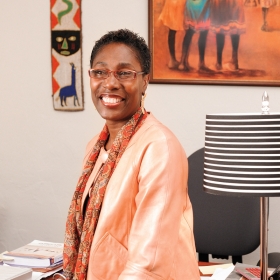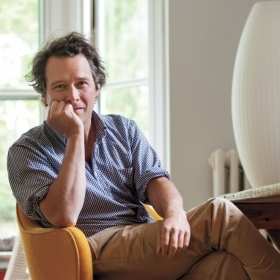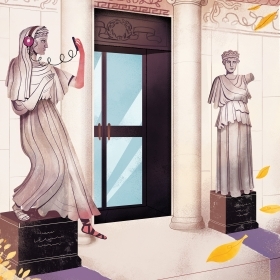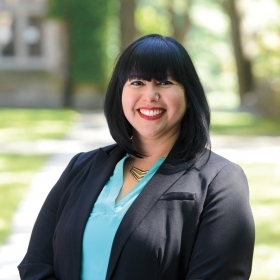Assistant Professor of Cognitive and Linguistic Sciences Angela Carpenter CE/DS ’99 explores how language works.

We had a few questions for Assistant Professor of Cognitive and Linguistic Sciences Angela Carpenter CE/DS ’99.
What brought you to Wellesley?
I had never finished college, but I wanted to. But I didn’t know where to go or what to study. One day, I read an ad for the Davis Scholar program in the Boston Globe. I said, “This is for me.” Then, as I was looking at a Wellesley brochure, I saw “language studies.” As I read the description, I thought, “Oh, oh my gosh, I’ve found it.” Literally, it was like a light bulb: This is what I want to study. It was then that I discovered the term linguistics.
How do explain what you do to people outside academe?
The first thing they’ll always say is, “Oh, you must speak a lot of languages.” And we all patiently say, “Well, some linguists do speak a lot of languages—but that’s almost incidental. We study the structure of language. We look at how language works.” And then I go on to discuss what I look at particularly—how do people develop an accent? How do people learn languages? I’m interested in phonology, the study of the sound systems of language, which leads us into accents.
You teach a popular course, Invented Languages.
That’s a fun class. We start off with the phonetics of the sound system. In that process, we review the possible sounds, but I make sure that the languages are not just going to be imitations of English. Then we go into phonology. The students decide what kind of a stress pattern their language will have. And they need a culture. A language does not exist outside of a culture, so they have to make up a whole world in which this language is spoken.
What books are on your nightstand?
Right now, my Bible is there. That’s always there. And I’m reading again, after 20 years, The Winds of War. I’m on War and Remembrance. I am rereading Jared Diamond’s The World Until Yesterday.
What’s your favorite place on campus?
The third floor of the library. The linguistics books are up there, and if you sit at the right spot, the sun comes in and it’s warm.


